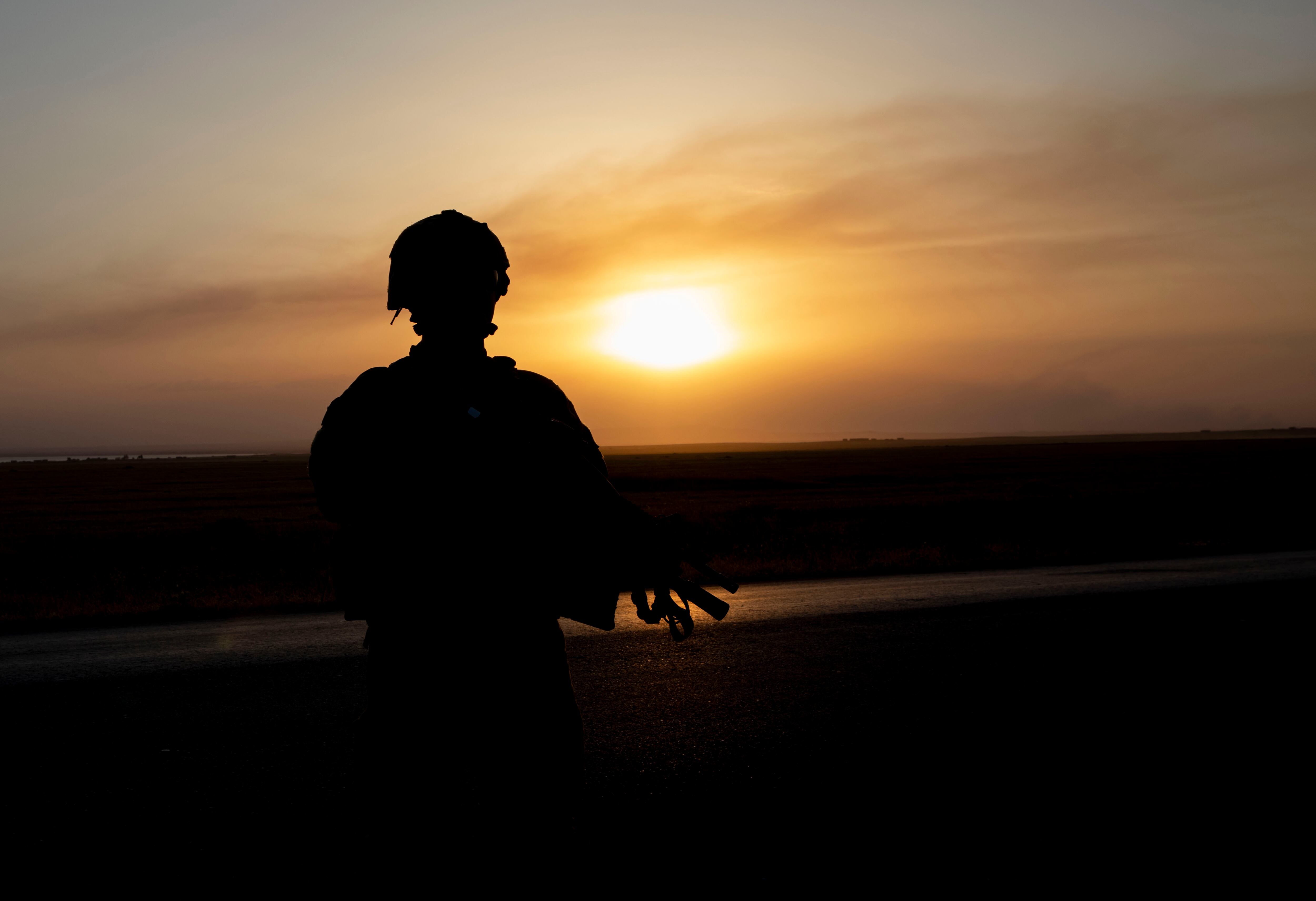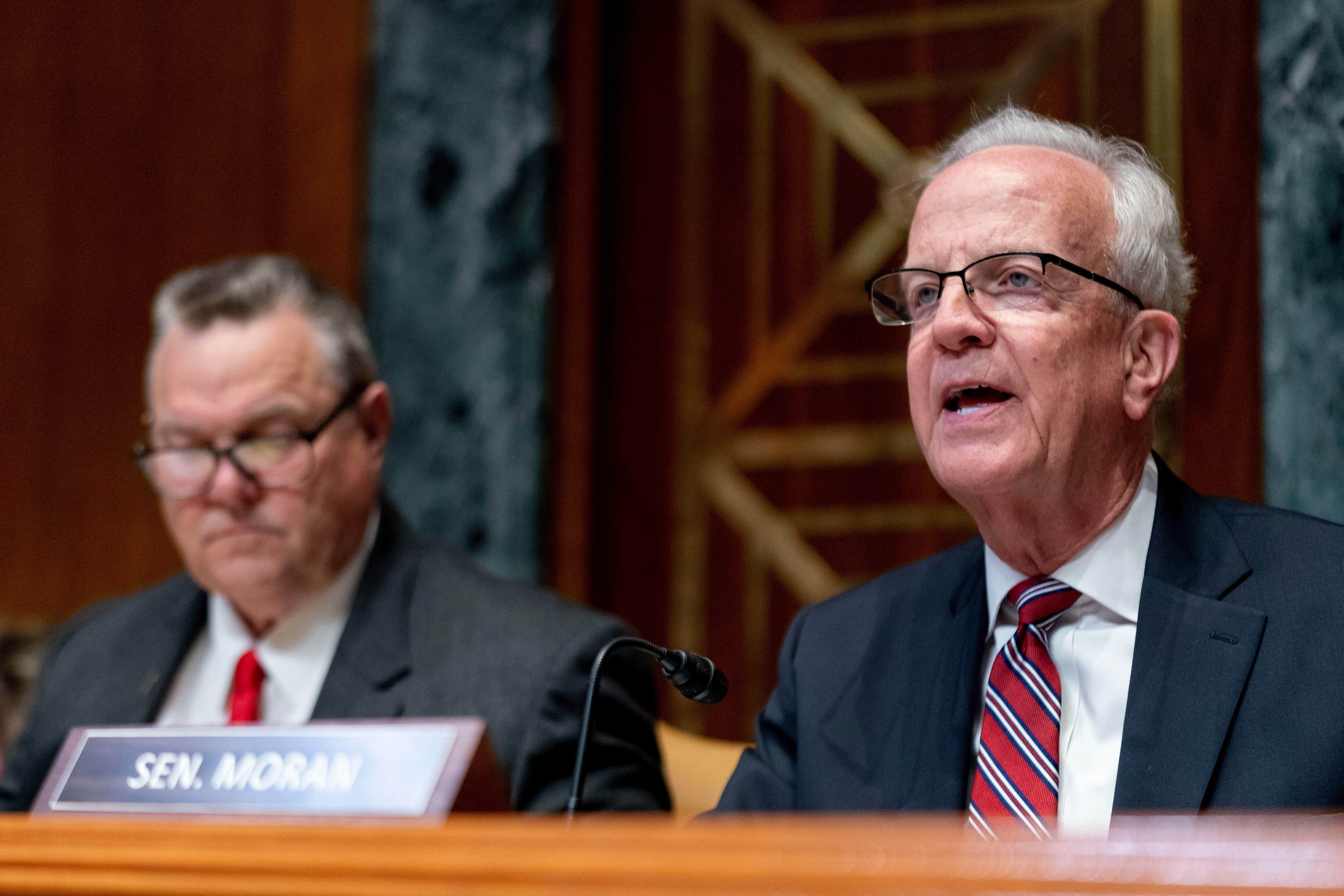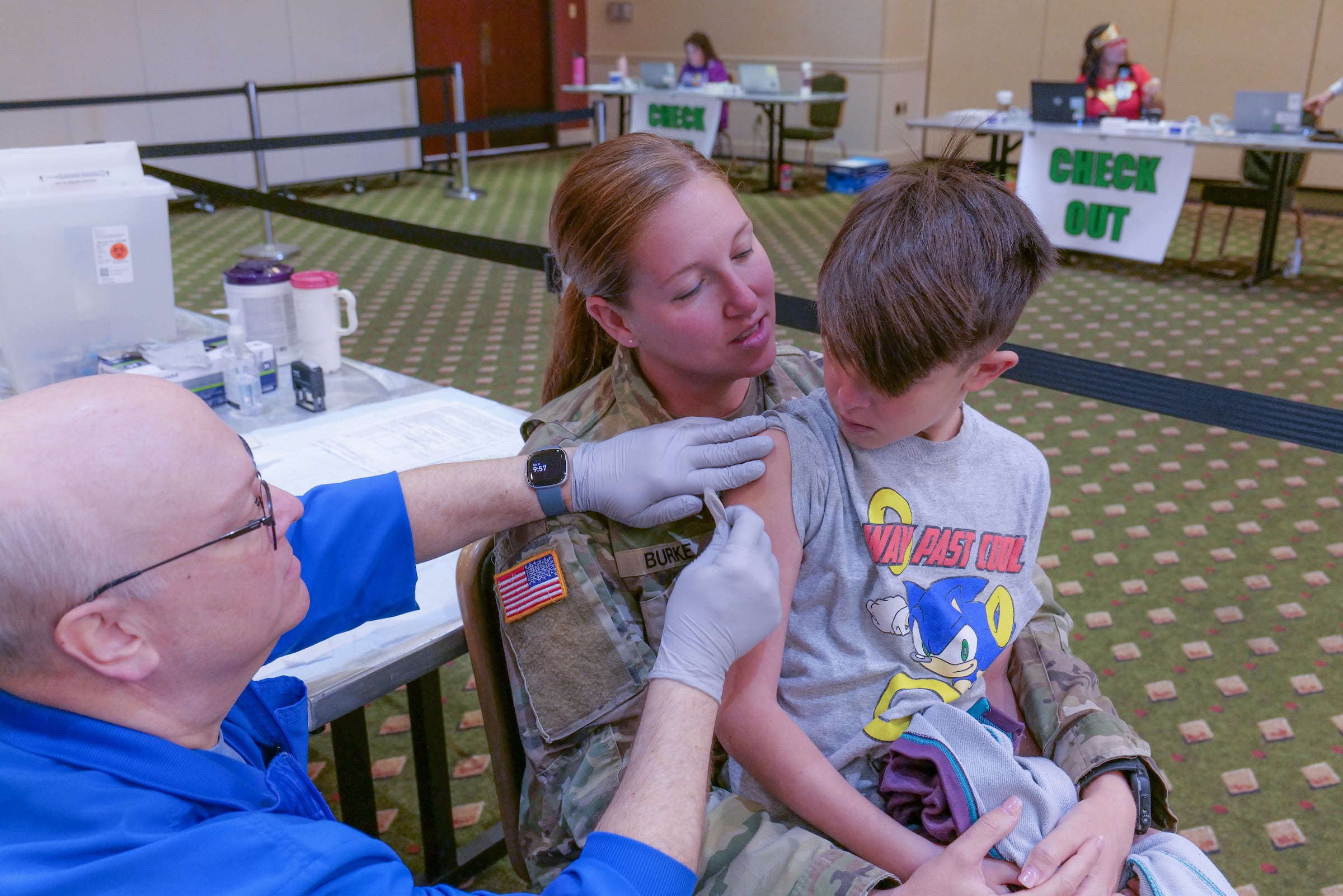Eight American service members were treated for injuries after an air attack drone struck a facility at the Rumalyn Landing Zone American base in Syria on Friday, according to the Pentagon.
Pentagon Press Secretary Air Force Maj. Gen. Pat Ryder initially told reporters that “several” U.S. and coalition personnel had been injured, though none of them seriously.
Since then, eight U.S. troops have been evacuated for medical tests and treated for traumatic brain injury and smoke inhalation.
Three out of those eight have since returned to their posts, and the rest remain under observation, Ryder said.
He didn’t offer any further details on who was behind the attack in Syria, where about 900 U.S. personnel remain as part of a coalition to counter the Islamic State.
Such positions have repeatedly come under attack by Iran-backed militias since the Palestinian militant group Hamas’ Oct. 7 attack on Israel, and Israel’s subsequent military operations in the Gaza Strip.
RELATED

Ryder declined to say whether U.S. forces would strike back for Friday’s drone attack, saying only that the United States “won’t tolerate” such attacks.
Friday’s attack comes as the region stands on the precipice of a full-scale war after Israeli strikes in Lebanon and Iran earlier this month that targeted leaders of the Iran-backed Hezbollah and Hamas groups.
American officials have since been rushing to contain the crisis — speaking with Israeli and other allied counterparts over the phone — and warning Iran not to escalate. The U.S. military has also surged more forces to Central Command, which oversees forces in the Middle East.
Those include more destroyers, a fighter squadron and the Abraham Lincoln Carrier Strike Group, which comes with advanced F-35 fighter jets. Over the weekend, in an unusual step, the Pentagon announced that carrier would “accelerate” its travel to the region and that the guided-missile submarine Georgia was also on its way.
There are now 40,000 U.S. forces in the area, 8,000 more than usual, per the Pentagon.
“The underlying message here is we’re working to de-escalate tensions,” Ryder said in a briefing. “No one wants a wider war.”
John Kirby, a spokesman for the White House, reiterated the same message while speaking to reporters earlier this week. While he said Iran’s behavior would be difficult to predict, an attack could still come later this week.
Meanwhile, representatives for Israel and Hamas were set to restart negotiations on a temporary cease-fire deal this week. The future of those discussions is murky, especially since the Israeli strike on Tehran killed the head of Hamas’ political wing. The U.S. hopes a short term peace deal could bloom into a more lasting end to the war in Gaza.
“We believe everybody needs to show up on Thursday and see if we can’t wrap this thing up,” Kirby said.
Noah Robertson is the Pentagon reporter at Defense News. He previously covered national security for the Christian Science Monitor. He holds a bachelor’s degree in English and government from the College of William & Mary in his hometown of Williamsburg, Virginia.





